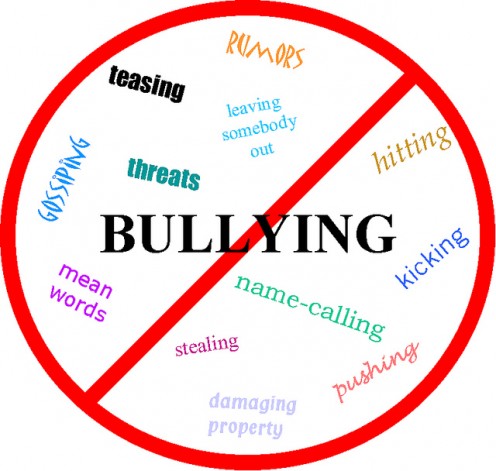Why do Bullies Pick on Others?

There are many opinions on why bullies pick on others, But studies have shown envy and resentment may be close to the top of the list. Some are arrogant and narcissistic. Others use bullying to conceal shame or anxiety, or perhaps to just boost their self-esteem. By humiliating others, they feel a sense of power. Perhaps they are simply jealous or were bullied themselves when they were younger.
Bullies are prone to abusive behavior and tend to think too highly of themselves. They also have inflated, fragile egos. Because of this they are frequently offended by criticisms and react with hostility and offensive remarks.
Other risk factors have been found such as personality disorders, depression and a tendency to resort to anger or force. Aggressive behaviors, or assuming others' actions as antagonistic, can be added to the list. Bullying may also be caused by a genetic predisposition or brain irregularity.
While parents can help children develop emotional stability and restrict aggressive conduct, some fail to acquire these traits due to insecure family attachments, lack of discipline, and stressful home situations. According to some investigators, bullies may perform poorly in school.
On the other hand, some have advocated bullies are psychologically strong and tend to be seen as popular among their peers. Peer groups frequently support a bully's actions by engaging in behaviors, such as mocking, hitting, and insulting one another. Research also bespeaks adults who bully have authoritarian issues, and a desire to control others.
Typical Tactics
Often, bullying happens in front of a group of bystanders. It's the bully's intent to create an illusion they have their support. This usually contributes to the dread of voicing protestation of the bully's behavior. Unless the bully is challenged early, it often becomes accepted and supported by the group of onlookers.
Observers who have been able to establish their own friendship or support group have been found more likely to speak out against bullies. Children who bully typically show signs of aggressive behavior, a need to dominate others, and have a propensity for violence.

The Victims
A characteristic of a victim is they tend to be aggressive and lack social skills. They are likely to have been rejected and isolated by peers. They are also physically weak and emotionally distraught. Other factors include physical characteristics such as being overweight or having a physical deformity. Children being bullied often show physical signs like being afraid to go to school. They may complain of headaches or loss of appetite, and have a general sense of sadness. One prerequisite is perception, by the bully or others, of a lack of social abilities or physical power.
There is no absolute definition of bullying. However, it is generally agreed bullying is a subcategory of aggressive behavior having these three criteria:
- Repetition over a period of time.
-
Hostile intent,
-
Imbalance of power.
Dealing with Bullying
Dealing with a bully, can be traumatic at any age. If you are a victim, or fear your child is, follow these tips for dealing with a bully.
Bullying can be a very painful experience. It can cause physical and emotional harm, and damage someone for a long time. A victim can suffer from physical injury, however long lasting effects to someone’s psyche can be even more so. Note, bullying doesn't necessarily need to be physical contact. It can be verbal or online through the Internet, or by text messaging on cell phones. This kind of abuse can inflict the same emotional and psychological effects as physical bullying. Being bullied can lead to troubles in forming healthy relationships, as well as depression, reduced self image and even suicide.
Tips for Dealing with a Bully
It can be difficult to deal with a bully individually. It's much easier when a bully’s parents and school are involved, working to help ease the situation if you are concerned your child may be a victim, here are some tips on helping them deal with it.
-
Hear what your child has to say. You need to be a place they can turn to for help. You must tell them it's not their fault.
-
Talk to school administrators. Discuss the problem with teachers, the principal or a counselor. A meeting with them can result in knowing how to help a child trying to cope with the problem. Too often, bullying takes place on school buses, in bathrooms, playgrounds and other areas hard to observe. If you know where it's happening, you can notify school authorities to ensure those areas are monitored.
-
Teach them to avoid the problem. Your child doesn't need to fight back. Inspire them to avoid bullies when possible. Suggest they walk away if possible and find a teacher or other entrusted individual.
-
Teach your child assertiveness. Teach your child to stand firm and tell the bully to leave them alone. In some cases, this actually works.
-
Role-playing with your child. It might be advantageous to do a little bit of role playing with your child. This way they can practice what to say, or how to avoid the situation.
-
Teach your child not to walk around alone. Traveling in groups can be an effective preventative against aggressors. Have your child go to school and other places with a group of friends.
It is also important to help your children and their friends understand this type of behavior is unacceptable. Certainly, your child needs to learn the proper way to stand up to bullies harassing others. But if your child and friends are willing to help others being bullied, before long the bully will have no one left to push around.
It's also advisable to watch your own child for signs they might be a bully. You must let your child know their actions are improper. If your child is a bully, find out why they may be misbehaving.





